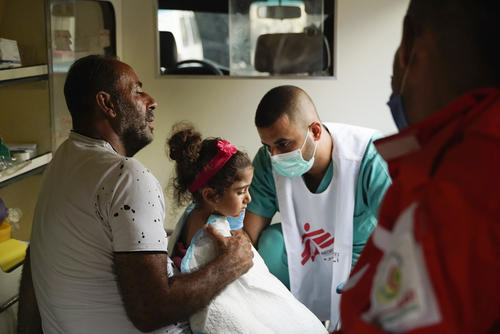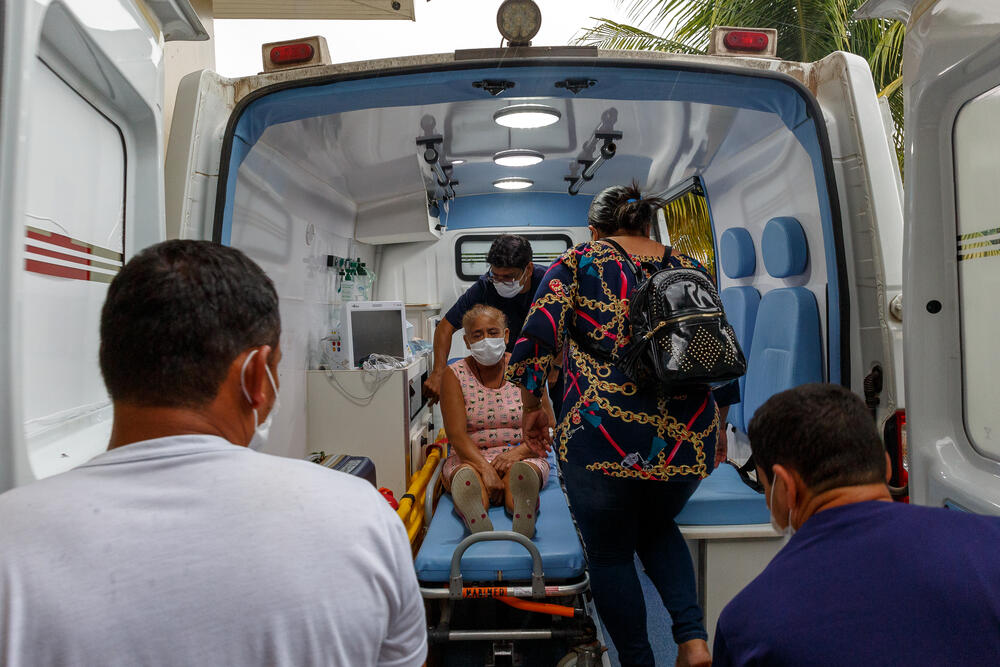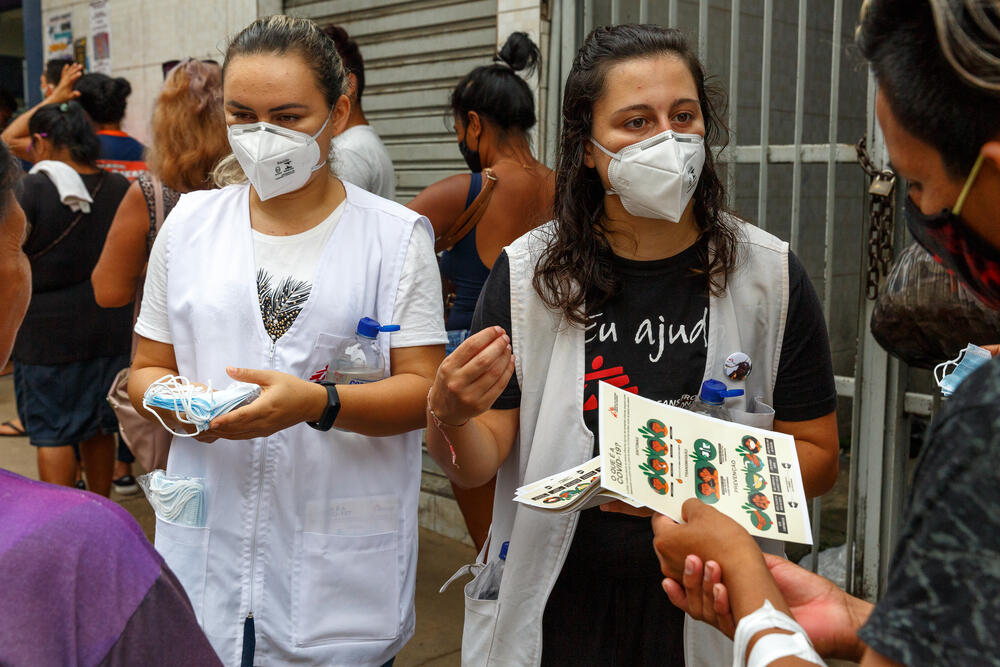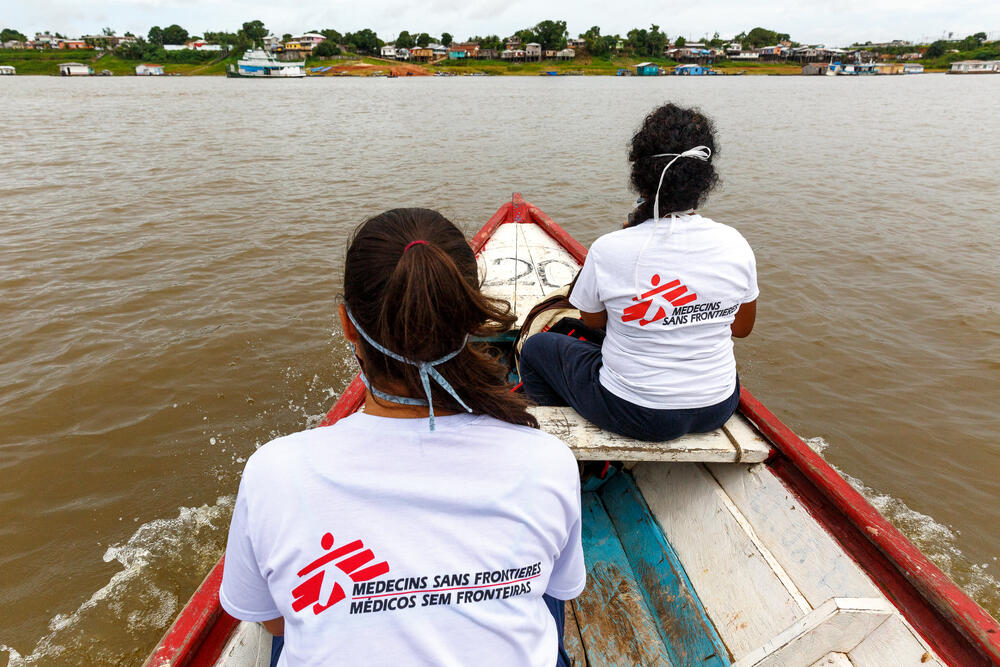COVID-19: Catastrophic second wave overwhelms Brazil’s Amazon city
The healthcare system in Manaus, capital of Brazil’s vast Amazonas State, has collapsed under the weight of COVID-19 cases as oxygen supplies threaten to run out.
Although hospitals have been adding COVID-19 bed capacity at an astonishing rate, the number of new patients has continued to grow even faster, meaning the entire health system is saturated and overloaded.
More seriously, the city’s capacity to produce oxygen is running at less than a third of the current needs, leaving some hospitals unable to ventilate patients and reportedly resulting in people dying of asphyxiation.
Now, the knock-on effect on rural towns upriver, in Brazil's Amazon jungle region, are starting to show and could be devastating.
Nowhere to refer
Médecins Sans Frontières / Doctors Without Borders (MSF) has teams in the Amazonian towns of São Gabriel da Cachoeira and Tefé, both a few days’ boat journey upriver from Manaus.
But, with the city hospitals full and struggling, there is now nowhere to refer the more severe patients from these more remote areas.
“We should be in a better position to save lives, but that is only if we have oxygen and possibilities to refer severe or critical patients to better-equipped hospitals”
We are urgently expanding teams and looking to see how we can help in Manaus directly, with the first members of an MSF team arriving in the city on 18 January. However, there have already been deaths because of the situation, and many more could follow.
In the first week of January, a third of COVID-19 patients in Tefé needed oxygen treatment, however last week that rose to two thirds.
It is not just that the number of patients is increasing, but their severity on arrival is getting worse, too, indicating a slide towards a disastrous situation.
“Knowing more about the disease, we should be in a better position to save lives, but that is only if we have oxygen and possibilities to refer severe or critical patients to better-equipped hospitals,” says Pierre Van Heddegem, country manager for MSF in Brazil.
“In the last week, no patients could fly from Tefé to Manaus. We lost three patients who would have had a chance to survive if they had received care in a big city hospital, but their referral was not possible.”
As there are no oxygen generator units near Tefé that can recharge the oxygen cylinders, they need to be sent to Manaus to be refilled.
MSF dispatched 50 new cylinders to the regional hospital in Tefé at the end of 2020, but now with no option to refill them in Manaus, the rural area is also at risk of running out.
“We have only a few days’ oxygen left in Tefé if the admissions continue at this rate,” adds Pierre.
Five times the number of cases
MSF is desperately looking for alternative solutions so that critically ill patients in Tefé can be assisted, despite the total saturation of the hospitals in Manaus.
Meanwhile, in São Gabriel da Cachoeira, another area in Amazonas State, the new year saw an immediate increase in COVID-19 cases, too. In the first week of January, there was five times the number of people infected with COVID-19 compared to the last week of 2020.
An observation centre for COVID-19 patients has been set up by the Ministry of Health and is being supported by an MSF team.
There is a small hospital able to generate oxygen, however, if patient numbers continue to rise, the sites will be overwhelmed and face the same prospects as the team in Tefé.
Evolving in real-time
MSF is also working to improve COVID-19 testing in the area, specifically using the antigen test that can tell if a person currently has the virus and gives a real-time view of the situation.
This is in contrast with the antibody test that is used widely across Brazil but can only tell if a person has already had the virus and has now developed an immune response – meaning they are no longer at risk of contaminating others.
“The test results come out in about an hour and can be done in the town, without having to send the samples to Manaus, as was the case until now,” explains Irene Huertas Martín, coordinator of the MSF project in the town.
MSF teams are providing COVID-19 safety information in the two towns and are looking into the need to do the same in Manaus.
Ensuring that people know how to protect themselves and those around them remains one of the most important ways to avoid the spread of the disease in a region where access to healthcare can be days away downriver.

Medical care where it's needed most
MSF and COVID-19
Our supplies and staff are stretched by the COVID-19 pandemic. But we’ve continued to care for people caught in some of the worst health crises in the world today by adapting to the dangers caused by the virus.


